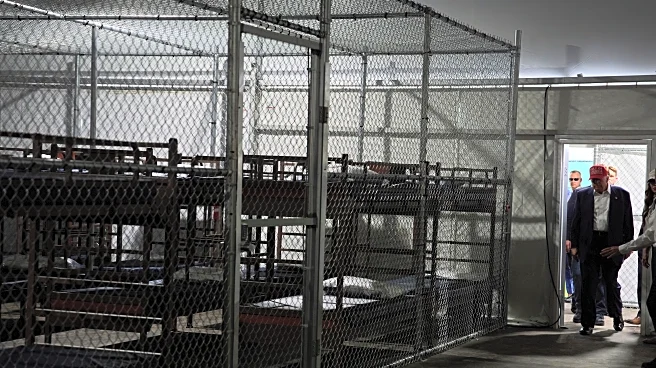What's Happening?
As the holiday shopping season approaches, U.S. retailers are preparing for potential stock shortages due to ongoing supply chain disruptions. According to Accenture's Holiday Shopping Surveys, 70% of
retail executives express concern that supply chain shocks could negatively impact holiday sales. These executives are worried about timely delivery of online orders and maintaining sufficient stock levels to meet consumer demand. The pandemic has highlighted the complexity and fragility of the supply chain ecosystem, particularly in the last-mile segment, which is crucial for managing disruptions. Additionally, climate and financial factors, such as drought, disease, and trade restrictions, are contributing to global supply chain challenges, affecting various sectors and causing ripple effects worldwide.
Why It's Important?
The potential stock shortages during the holiday season could have significant implications for U.S. retailers and consumers. Retailers may face challenges in meeting consumer demand, leading to lost sales and decreased customer satisfaction. The disruptions could also impact pricing strategies, as shortages may drive up prices. For consumers, this could mean fewer options and higher costs during a peak shopping period. The situation underscores the need for retailers to enhance their supply chain resilience and adaptability to mitigate future disruptions. The broader economic impact could extend to related industries, such as logistics and transportation, which are integral to the supply chain.
What's Next?
Retailers are likely to explore strategies to mitigate the impact of supply chain disruptions, such as diversifying suppliers, increasing inventory levels, and investing in technology to improve supply chain visibility and efficiency. Collaboration with logistics partners to enhance last-mile delivery capabilities may also be prioritized. As the holiday season progresses, retailers will closely monitor consumer demand and adjust their strategies accordingly. Policymakers and industry leaders may engage in discussions to address systemic supply chain vulnerabilities and explore solutions to enhance resilience against future disruptions.










